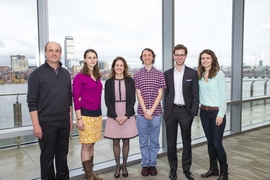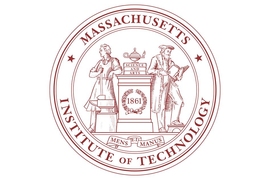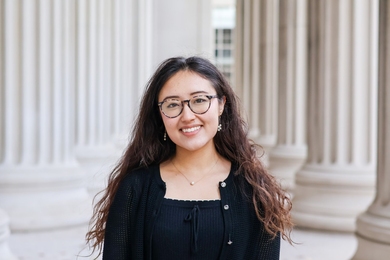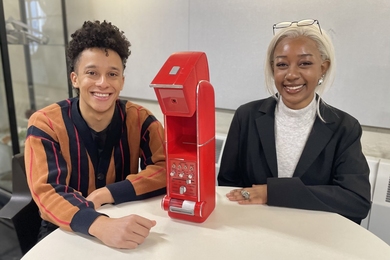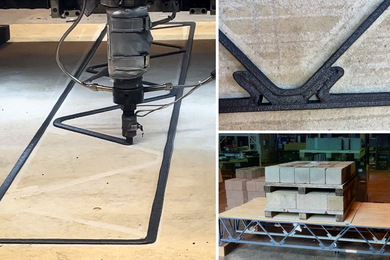MIT will follow its landmark 2014 Campus Attitudes on Sexual Assault Survey (CASA) by administering the Association of American Universities (AAU) 2019 Campus Climate Survey to undergraduate and graduate students during the upcoming spring 2019 semester, Chancellor Cynthia Barnhart SM ’85, PhD ’88 announced today.
This will allow the Institute to measure the progress made to combat sexual misconduct in the five years since the first survey; identify and respond to new issues the AAU survey may uncover; and put MIT’s results into the context of national AAU aggregate data. Earlier today, the AAU announced that 33 institutions will be participating in the AAU survey next spring.
“At MIT, we don’t shy away from tough problems, and we care deeply about creating a safe, welcoming, and respectful climate for every member of our community,” said Barnhart. “Our 2014 survey provided us with critical information about how sexual misconduct affects the MIT student community, and it helped us develop data-driven education and prevention programs and policies. With the 2019 survey, we will continue to employ self-evaluation and transparency so that we can enhance our understanding of, and response to, this complex issue; create community dialogue about solutions; and send a very clear message that sexual misconduct has no place on our campus.”
Looking back: CASA survey and MIT’s response
Responding to a request from MIT President L. Rafael Reif that Barnhart make sexual assault prevention a central priority when he appointed her chancellor in February 2014, Barnhart emailed the CASA survey to all MIT students on April 27, 2014 — two days before a White House task force issued guidance that all of the nation’s colleges and universities survey their students on these matters. The CASA survey results were released in October 2014 alongside a series of Institute-wide steps that began a process of comprehensively addressing the findings.
In the three academic years since the CASA survey’s administration, MIT has added new services, expanded education and community outreach initiatives, and updated policies and procedures in order to prevent and respond to sexual misconduct. This work is also aimed at positively influencing attitudes and behaviors so that real changes in culture take hold on MIT’s campus. Examples of different efforts include:
- The Title IX and Violence Prevention Response (VPR) offices have relied on education, prevention, community outreach, and investigatory specialists to educate more people about how to prevent sexual misconduct from happening, and about how to effectively respond when incidents occur.
- In response to a specific CASA survey finding — 63 percent of respondents who reported experiencing unwanted sexual behavior told someone about it; 90 percent of those students sought support from a friend — these offices have also focused on bolstering peer-to-peer support resources and programs.
- Important policy and procedural changes have also been implemented in recent years. In the 2017-18 academic year alone, the following enhancements were introduced:
- A new policy on consensual sexual or romantic relationships in the workplace or academic environment and online training for all faculty and staff went into effect (all new students and faculty and staff were already required to complete online training). These two initiatives were championed by the Institute Committee on Sexual Misconduct Prevention and Response (CSMPR), established by Chancellor Barnhart in 2015.
- The Title IX Office worked with students, faculty, and staff to update MIT’s sexual misconduct policy so that a consistent definition of sexual misconduct applies to all students, faculty, and staff. The new policy also clearly defines important terms and adds more examples and explanations of inappropriate behavior.
- The Title IX Office began to offer a new online reporting form to lower the barriers for seeking help and reporting.
Looking ahead: AAU 2019 Campus Climate Survey
In a November 2017 update to the MIT community, Barnhart cited preliminary indicators that the Institute’s prevention, response, and cultural change efforts are having a positive impact. While acknowledging that more work must be done, she pointed to the fact that more students have been coming forward to seek support or report unwanted sexual behavior; more community members are involved in the work to create a safer, more respectful, and inclusive campus climate; and 2017 survey data that show more students believe their peers treat one another with respect.
The AAU’s 2019 Campus Climate Survey will mark the first time MIT will be able to gauge current campus attitudes about, and experiences with, sexual misconduct as well as holistically evaluate its efforts since the 2014 CASA survey. The Office of the Chancellor is currently working with campus partners across MIT, the AAU, and other participating institutions on the design of the survey instrument. The team is also working alongside MIT student leaders to start thinking about strategies to achieve a high response rate next spring.
In 2015, AAU surveyed more than 150,000 students at 27 universities. According to the AAU, the survey was one of the largest ever conducted and provided participating institutions with insights into student perceptions of campus climate, and helped universities better understand student experiences with sexual assault and misconduct.


